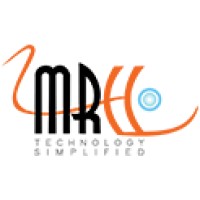Unlocking The Future Of K–12 Education
In recent years, K–12 school education has undergone rapid evolution, driven largely by advances in technology, pedagogy, and the need for more inclusive and effective learning models. At the heart of this transformation lies a powerful shift: the adoption of content-driven strategies. From personalized instruction to immersive digital resources, comprehensive content-driven strategies for K-12 schools are transforming the way students learn, teachers teach, and school systems operate.
The Shift Toward Content-Driven Learning
Traditional education systems often relied on rigid textbooks and one-size-fits-all teaching methods. However, the modern classroom demands a more adaptive and dynamic approach. This is where K–12 learning solutions powered by rich content come into play. These strategies emphasize the role of high-quality, curriculum-aligned digital content to:
- Engage students more deeply.
- Address varied learning styles.
- Support differentiated instruction.
- Facilitate continuous assessment.
By tailoring content to meet the individual needs of students, schools can better support diverse student populations and enhance learning outcomes.
Benefits Of Content-Driven Strategies In K–12 Education
- Personalized learning in K–12
Every student learns differently. Content-driven strategies leverage data analytics and adaptive technologies to create personalized learning paths. These solutions enable students to learn at their own pace, revisit challenging concepts, and progress based on mastery rather than age or grade level. - Comprehensive content solutions for schools
Schools are increasingly adopting end-to-end digital content ecosystems. These platforms provide educators with curated lesson plans, multimedia resources, real-time analytics, and integrated assessments. Such comprehensive systems streamline teaching processes while enhancing student engagement. - Next-gen K–12 education
Content strategies are at the core of next-gen K–12 education. They promote competency-based learning, inquiry-driven lessons, and interdisciplinary approaches that mirror real-world scenarios. Through interactive simulations, gamified learning, and project-based modules, students gain critical thinking and problem-solving skills essential for the future. - Equity and accessibility
Digital content removes traditional barriers to learning. Whether a student attends an urban school or a rural setting, digital learning for schools ensures equitable access to high-quality resources. Features such as multilingual support, closed captions, and offline access further enhance accessibility. - Teacher empowerment through EdTech for K–12 schools
Educators are empowered with tools that make planning, instruction, and evaluation more efficient. Content management systems, learning analytics, and collaboration tools enable teachers to spend more time on instruction and less on administrative tasks.
The Role Of A K–12 Digital Curriculum
An essential component of content-driven strategies is the K–12 digital curriculum. Unlike traditional textbooks, digital curricula are:
- Continuously updated.
- Aligned with state and national standards.
- Interactive and multimedia-rich.
- Customizable for diverse classrooms.
This flexibility enables schools to stay current with educational trends and ensures that students learn content that is relevant, engaging, and effective.
Implementing Content Solutions for K–12: Key Considerations
While the advantages are numerous, successful implementation requires thoughtful planning and execution. Schools should consider
- Needs assessment
Identify learning gaps and areas where content can make a measurable difference. - Professional development
Train teachers to effectively integrate content solutions into their pedagogy. - Infrastructure readiness
Ensure schools have the necessary technology and bandwidth to support digital learning. - Student-centric design
Choose platforms and content that are intuitive, inclusive, and age-appropriate.
Case In Point: Transforming K–12 Education At Scale
Several school districts across the globe have successfully adopted content-driven K–12 learning solutions. For instance, districts using adaptive math platforms have reported increased test scores and higher student engagement. Others integrating science simulations and virtual labs have noted improvements in critical thinking and practical knowledge. Moreover, during the pandemic, schools with established digital learning for schools infrastructure were able to pivot quickly to remote learning, minimizing disruptions and maintaining instructional continuity.
The Future Of K–12 School Education
As we look ahead, the role of content in education will only grow. AI-driven platforms, immersive technologies like AR/VR, and data-informed instruction will become more prevalent. However, the focus will remain on creating meaningful, equitable, and engaging learning experiences for all students.
Investing in content solutions for K–12 is no longer optional; it's a strategic imperative. Schools that harness the power of these strategies are better equipped to prepare students for the challenges and opportunities of the twenty-first century.
Conclusion
The transformation of K–12 school education through content-driven strategies marks a pivotal moment in academic innovation. With comprehensive content solutions for schools, educators can deliver more personalized, accessible, and effective instruction. From enhancing the K–12 digital curriculum to enabling next-gen K–12 education, the impact is far-reaching. Embracing these innovations today ensures a brighter, more informed tomorrow for learners everywhere.










